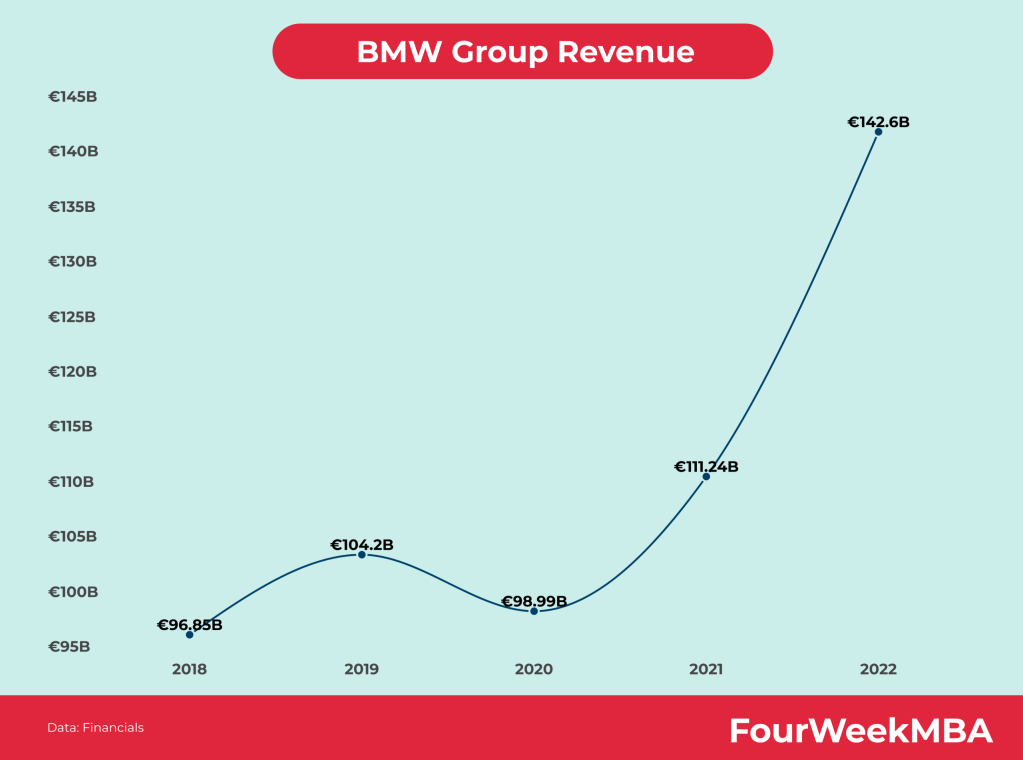The Evolving Chinese Automotive Market: Implications For BMW, Porsche, And Competitors

Table of Contents
The Rise of Electric Vehicles (EVs) in China and its Impact on Luxury Brands
The Chinese government's strong push towards electric vehicle adoption is fundamentally reshaping the automotive landscape. This aggressive policy is creating a ripple effect across the industry, particularly impacting luxury brands like BMW and Porsche.
Government Policies and Subsidies Driving EV Adoption
China's commitment to EVs is evident in its comprehensive policy framework. These policies are not only driving consumer demand but also fostering the growth of a robust domestic EV industry.
- Purchase Subsidies: The government offers substantial purchase subsidies for electric vehicles, making them more affordable for consumers.
- Charging Infrastructure Development: Significant investment in charging stations across the country is addressing range anxiety, a major barrier to EV adoption.
- Emission Regulations: Stringent emission standards are incentivizing automakers to prioritize the development and production of EVs.
These policies have created a fertile ground for the growth of the China EV market, accelerating its expansion at a rate unseen in other global markets. The "Electric vehicle subsidies" and "Government regulations" are crucial factors in this dynamic.
Competition from Domestic EV Manufacturers
Chinese EV manufacturers are rapidly gaining market share, posing a significant threat to established luxury brands. Their innovative technology, competitive pricing, and strong understanding of the local market are key factors in their success.
- BYD: BYD has emerged as a dominant player, leveraging its expertise in battery technology and vertical integration.
- NIO: NIO focuses on premium EVs and offers a comprehensive battery-as-a-service model.
- XPeng: Xpeng is known for its advanced driver-assistance systems and strong technological capabilities.
This intense "Competition in the Chinese EV market" from "Chinese EV brands" like BYD, NIO, and Xpeng requires foreign automakers to reassess their strategies.
BMW and Porsche's EV Strategies in China
BMW and Porsche are responding to the EV revolution with targeted strategies for the Chinese market. However, they face significant hurdles in competing with established domestic brands.
- BMW iX: BMW is aggressively expanding its EV lineup with models like the iX, tailored to appeal to Chinese consumers.
- Porsche Taycan: Porsche introduced the Taycan, a high-performance EV, to capture a segment of the luxury EV market.
- Localized Production and Marketing: Both brands are investing heavily in localized production and marketing campaigns specifically designed for the Chinese market.
Understanding the nuances of "BMW EV strategy China" and "Porsche EV strategy China" is crucial for their continued success in the face of intense competition.
Shifting Consumer Preferences and the Luxury Car Market
The Chinese consumer landscape is evolving rapidly, with changing demographics and preferences significantly impacting the luxury car market.
Changing Demographics and Buying Habits
The rise of a young, affluent, and tech-savvy generation is driving demand for innovative, personalized, and environmentally conscious vehicles.
- Younger Demographics: A larger proportion of car buyers are now millennials and Gen Z, prioritizing technology and sustainability.
- Increased Disposable Income: Rising income levels are fueling demand for luxury vehicles, but with a greater focus on value.
- Lifestyle Choices: Consumer choices are increasingly shaped by their lifestyle preferences, including eco-consciousness and technological integration.
This shift in "Chinese consumer preferences" is transforming the "Luxury car market China" and its "Changing demographics China."
The Importance of Brand Image and Customization
In this competitive market, building a strong brand image and offering customization options are critical for attracting Chinese buyers.
- Digital Brand Building: Luxury brands are leveraging digital platforms to build strong brand identities and engage with younger consumers.
- Personalized Experiences: Providing customized vehicle options and after-sales services enhances customer loyalty.
- Collaborations and Partnerships: Collaborating with local brands and influencers helps to increase brand awareness and credibility.
The importance of "Luxury brand image China" and "Car customization China" cannot be overstated in this dynamic market. Effective "Brand building strategies" are vital.
Impact on Pricing and Marketing Strategies
Understanding Chinese consumer preferences necessitates adjustments in pricing and marketing approaches.
- Competitive Pricing: Luxury brands must strike a balance between maintaining brand prestige and offering competitive prices.
- Targeted Marketing Campaigns: Digital marketing, social media engagement, and influencer marketing are increasingly crucial.
- Emphasis on Technology and Sustainability: Highlighting advanced technology and environmental features are key selling points.
Effective "Pricing strategies China" and "Marketing strategies China" are crucial for success in the "Luxury car marketing China" segment.
Increased Competition and Market Saturation
The Chinese automotive market is becoming increasingly saturated, with domestic brands aggressively expanding their market share.
The Growing Presence of Domestic Brands
Domestic automakers are rapidly improving their technology, design, and manufacturing capabilities, posing a formidable challenge to foreign players.
- Competitive Pricing and Features: Domestic brands offer vehicles with competitive features and pricing, appealing to a wider range of consumers.
- Strong Domestic Supply Chains: Established supply chains and manufacturing capabilities give them a competitive advantage.
- Understanding the Local Market: Their deep understanding of Chinese consumer preferences is a crucial asset.
The presence of these "Domestic car brands China" is significantly impacting the "Competition in the Chinese automotive market" and affecting overall "Market share China."
Strategies for Differentiation and Market Penetration
Foreign automakers need to adopt innovative strategies to maintain competitiveness and achieve market penetration.
- Localization: Adapting products and marketing to the specific needs and preferences of the Chinese market is essential.
- Joint Ventures: Collaborating with local partners provides access to distribution networks and manufacturing expertise.
- Niche Marketing: Focusing on specialized segments, such as electric vehicles or luxury SUVs, can help carve out a distinct market position.
Successful "Market penetration strategies China" require effective "Joint ventures China" and thoughtful "Localization strategies China."
The Future of the Chinese Automotive Landscape
The future of the Chinese automotive market presents both significant challenges and opportunities.
- Continued EV Growth: The electric vehicle segment will continue to expand rapidly, driving further innovation and competition.
- Technological Advancements: Autonomous driving technology, connectivity, and other advanced features will play an increasingly important role.
- Government Regulations: Further government regulations will shape the industry's trajectory, influencing technology adoption and market dynamics.
Understanding the "Future of the Chinese automotive market," including "Automotive industry trends China," and "Challenges in the Chinese automotive market" is critical for long-term success.
Conclusion: Navigating the Evolving Chinese Automotive Market
The Chinese automotive market is a dynamic and intensely competitive landscape. The rise of EVs, shifting consumer preferences, and increased competition from domestic brands are reshaping the industry. Foreign automakers like BMW and Porsche must adapt quickly to survive and thrive. They need to prioritize EV development, understand evolving consumer needs, and adopt effective strategies for differentiation and market penetration.
Key implications for BMW, Porsche, and their competitors include the need for significant investment in EVs, localized production, and targeted marketing campaigns tailored to the unique preferences of Chinese consumers. Furthermore, building strong brand equity and leveraging strategic partnerships are vital for long-term success in this dynamic market.
Understanding the evolving Chinese automotive market is crucial for success. Conduct thorough research into the latest trends and strategies to effectively navigate this dynamic landscape and secure a position in this vital market.

Featured Posts
-
 Cau Ma Da Du An Trong Diem Ket Noi Dong Nai Va Binh Phuoc Khoi Cong Thang 6
May 22, 2025
Cau Ma Da Du An Trong Diem Ket Noi Dong Nai Va Binh Phuoc Khoi Cong Thang 6
May 22, 2025 -
 Did Selena Gomez Just Expose Blake Lively Triggering A Rift With Taylor Swift
May 22, 2025
Did Selena Gomez Just Expose Blake Lively Triggering A Rift With Taylor Swift
May 22, 2025 -
 Siren Trailer Milly Alcock And Meghann Fahy Fight For Survival
May 22, 2025
Siren Trailer Milly Alcock And Meghann Fahy Fight For Survival
May 22, 2025 -
 Nato I Ukraina Poslednie Peregovory I Kommentariy Evrokomissara
May 22, 2025
Nato I Ukraina Poslednie Peregovory I Kommentariy Evrokomissara
May 22, 2025 -
 Blake Lively And Taylor Swift Details Emerge In Alleged Blackmail Dispute Involving Leaked Texts
May 22, 2025
Blake Lively And Taylor Swift Details Emerge In Alleged Blackmail Dispute Involving Leaked Texts
May 22, 2025
